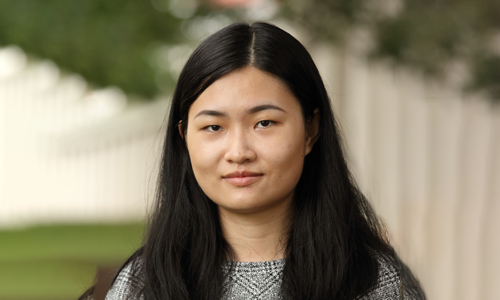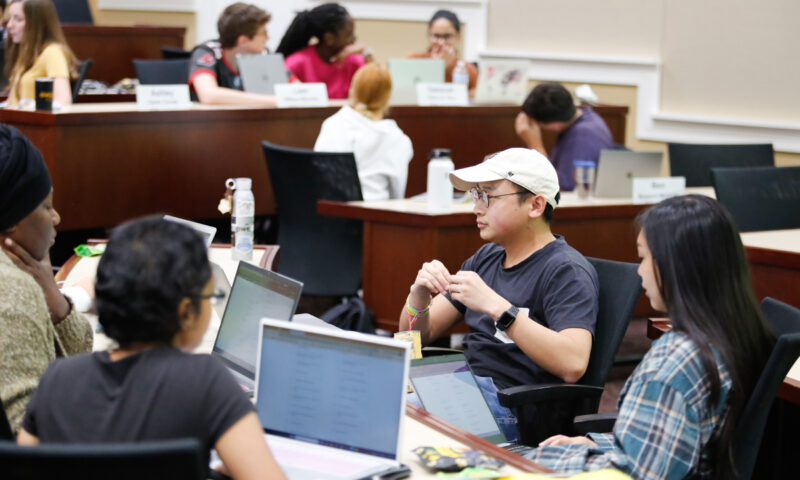This semester, I took Professor Jennifer Winchel’s Judgment and Decision Making course, a class that is open to any student in the M.S. in Accounting Program. Regardless of if students are in the Financial Reporting & Assurance or Tax Consulting track, Judgment and Decision Making benefits those who will perform any accounting-related tasks during their career.
One of the reasons I decided to take this course was because I’ve always been interested in psychology. Going back to my undergraduate studies, I learned about topics in abnormal psychology and took other courses in the subject that I really enjoyed. Professor Winchel’s course elaborates on ideas like personality, emotions, motivation, and perception, and yet, there is no requirement for you to have a foundation in psychology before taking it. Another aspect of the course that I enjoyed is that the subject matter is very practical in nature and we were often asked to provide real-world or personal examples to explain different topics.
In the Judgment and Decision Making course, we discussed how cognitive psychological biases, personality, behavior, and presentation of information can have an effect on the accuracy of one’s choices and decisions in an accounting setting. The class also introduced subjects like modern behavioral economics, social psychology, cognitive models of information processing, and research design tools that are important to understanding how psychology plays into accounting. Overall, the main idea is that we, as human beings, are not always rational with our decision making and instead, tend to use mental shortcuts to reduce complex tasks and find the best solution.
Professor Winchel also used research papers published by her and her colleagues to help us understand how these cognitive biases play a role in accounting. Her primary research is focused on how information intermediaries and managers’ disclosure choices impact investor judgment and decision-making processes. As a former audit manager at PwC, she is also able to use real-life examples from her career that closely relate to what we are studying.
For one of the group projects that we completed, we had to choose a bias that accountants appear to have based on our own observation or research on accounting. We then recorded videos going through debiasing strategies and how we would mobilize those strategies in a work setting to overcome those biases.
Overall, I had a great experience in the class and enjoyed learning about how psychology and accounting intersect more than we might think. It was also interesting to look at ourselves and think about our own biases that we may have that could affect our ability to make decisions in the professional world of accounting. I hope my experience in this class can help provide more insight into the interesting and varied course offerings of the M.S. in Accounting Program.



